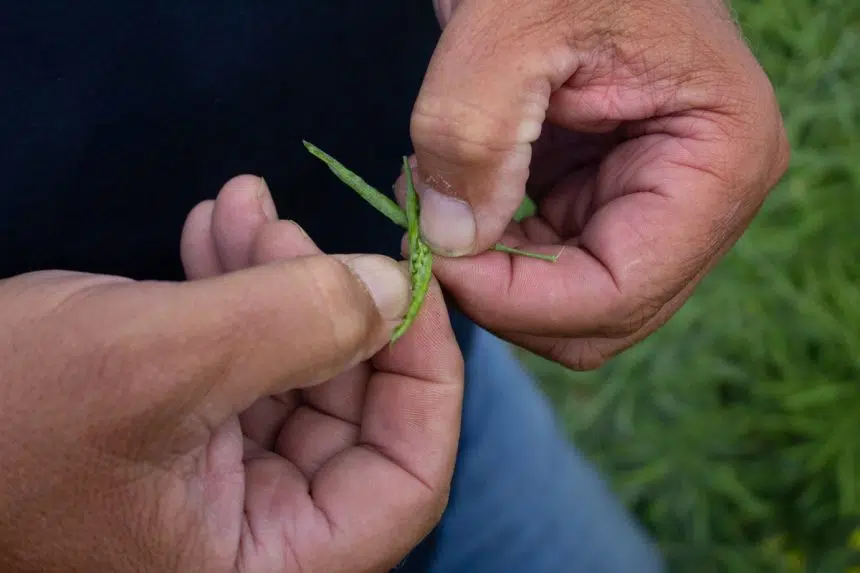A dispute between Beijing and Ottawa led to a ban on Canadian canola to China.
But that hasn’t dampened the demand for the oilseed.
Todd Lewis, president of the Agricultural Producers Association of Saskatchewan and a farmer in Gray, said demand has remained high and steady for canola.
“The major impact for most Saskatchewan farmers was a price decrease when China pulled out of the market,” Lewis said.
He said the two major exporters of Canadian canola — Richardson Oilseed and Viterra — were blocked by Chinese authorities, but other companies remain free to export Canadian oil and seed to China.
“It’s not a total blockade,” Lewis said. “We probably legitimately can say that there are third parties that are exporting Canadian oil and Canadian canola seed into China as well through other countries.”
Lewis farms canola, lentils and durum. He says it makes sense that demand has remained consistent.
“Once you use canola for food, it’s difficult to replace with other oils because it’s a high-quality oil,” he said.
“There has been an increase (in exports) to Europe but also to other countries, in Indonesia and the Middle East as well, and so it is thought that the canola is finding its way to China because it’s a very popular product in China.”
Lewis said he sees a good canola crop on the horizon for farmers in Saskatchewan, which he hopes will be supplemented by better prices.
“The price has gone up significantly over the last month and we’re sure hoping to see that price hold and if not, even increase going into the winter months this year,” he said.
“I think farmers are happy the demand has stayed the same but we certainly want to see prices increase.”
Currently, Lewis said prices per bushel are about $1 to $1.50 off from what producers would expect.
“Typically we should be seeing in the high-$10 to $11 range in canola and we haven’t been there,” Lewis explained.
“There has been lots of canola sold over the last number of months … (The price) is disappointing and that’s a lot of our profit margin and canola is a high-input, high-cost crop to grow.”
He said farmers are starting to question why they haven’t seen an increase in prices when demand has remained high for high-quality Canadian exports.
“I think it’s important for China to realize, too, if they’re going to stay out of the market that Canadian canola is high quality and recognized as the best product in the world, the world leader,” Lewis said.
“There’s other countries that are interested in buying it and we’ve done a good job — the Canola Council and so on — of finding other export markets.”












